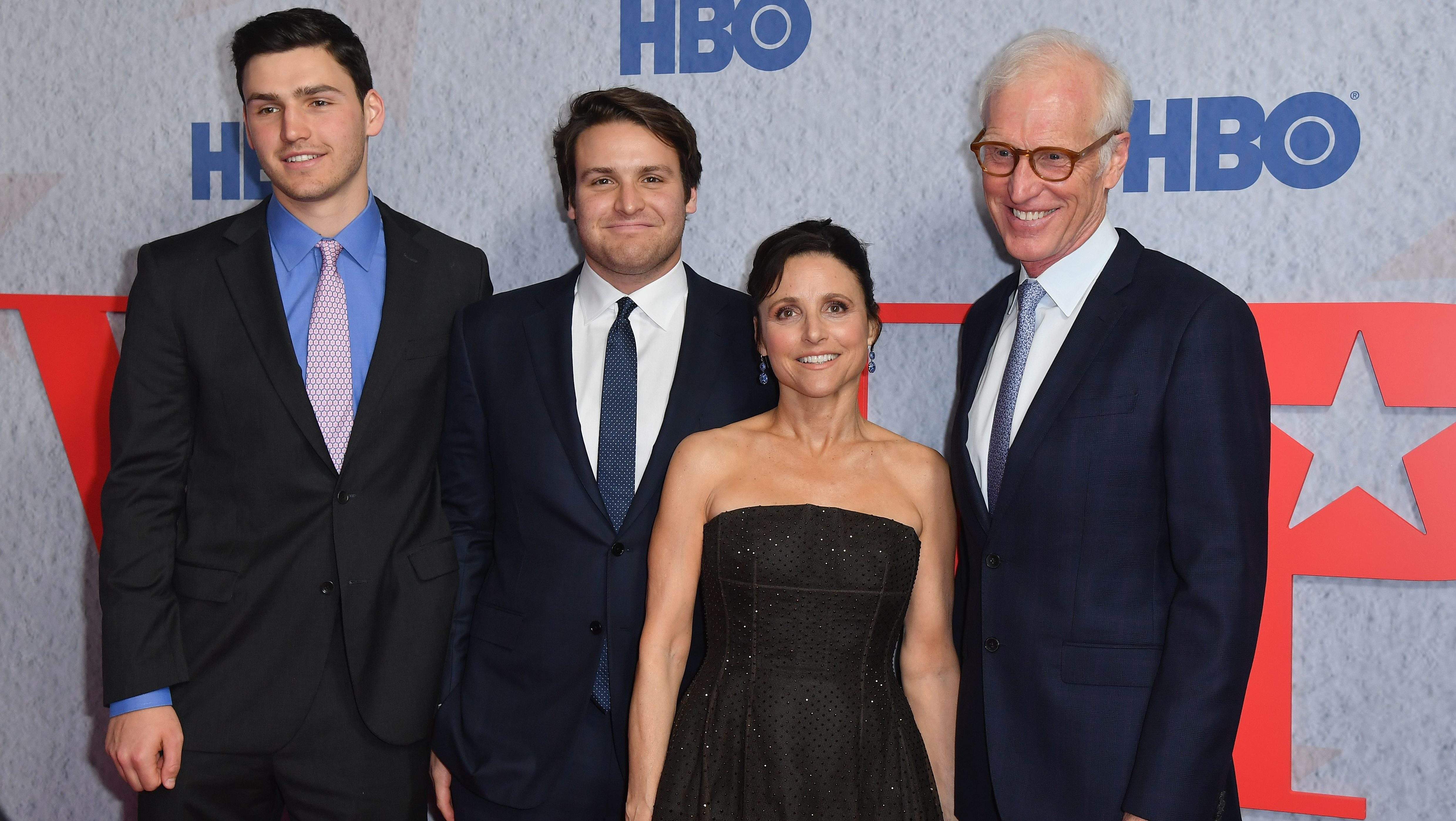Infertility Doesn't Mean Your Hopes for a Family Are Over, You Have Options
- “Seinfeld” actress Julia Louis-Dreyfus, 63, and her husband once suffered an emotional fertility setback in the late 1980s when she learned their fetus would not make it to term. It took her a while to cope emotionally before bouncing back to her usual self. Years later, the couple would have two sons in the ‘90s.
- Fertility struggles are a fact of life for some cancer patients because certain cancer treatments, including chemotherapy and radiation, can affect both men’s and women’s fertility.
- It’s recommended that before undergoing cancer treatment, patients talk to their doctors about fertility preservation if they wish to have a family in the future.
- Egg, sperm, and embryo freezing are common approaches to fertility preservation, but other options exist.
- Louis-Dreyfus was diagnosed with stage 2 breast cancer in 2017 and underwent six grueling weeks of chemotherapy and a double mastectomy (removal of both breasts) for treatment to help her reach remission.
Actress Julia Louis-Dreyfus, 63, is a mother of two – Charlie, 26, and Henry Hall, 31 – but before they were born, the “Seinfeld” actress and her husband Brad Hall, 65, tried to have a baby in the late ‘80s but were unsuccessful. The fertility setback was an emotional experience for them at the time.

Many couples, at one point or another, experience infertility. The Centers for Disease Control and Prevention (CDC) says within the U.S., “about one in five” married women between the ages of 15 to 49 with no prior births are unable to get pregnant after trying for a year. Additionally, “one in four” of women in this group struggle to get pregnant or carry the pregnancy to term.
Read More
Julia Louis-Dreyfus is among Hollywood’s most successful actresses starring in hit productions, including “Saturday Night Live,” “Seinfeld,” and “Veep.” However, she says during the late 1980s, infertility impacted her and Brad personally.
“When I was about 28, I got pregnant for the first time, and I was crazy happy,” Louis-Dreyfus said during her “Wiser than Me” podcast.
“I got pregnant easily. I felt very fertile, very womanly. Then, quite late in the pregnancy, my husband, Brad, and I discovered that this little fetus was not going to live,” she continued.
“That was emotionally devastating, as you can imagine, but it got worse because I developed an infection that landed me in the hospital,” the “Veep” star added.
Continual support from her mom and husband helped her through the emotional time. A couple of years later, she would have two sons.
A few decades later, Louis-Dreyfus was diagnosed with breast cancer in 2017. Her diagnosis came at an exciting time in her life and career, as she had just won an Emmy.
“The night before, I had won an Emmy. And so, I came downstairs and…the Emmy was there. It was like on the dining room table. I’m coming down to get coffee. My cell phone rings, and it’s my doctor saying, ‘Guess what, you have cancer,’” Louis-Dreyfus said, according to People.

She was diagnosed with stage 2 breast cancer. Stage 2 breast cancers are either larger than stage 1 tumors or have moved to a few nearby lymph nodes. Treatment will likely be some combination of surgery, radiation, and chemotherapy. If chemotherapy is also needed after surgery, the radiation is delayed until the chemo is done. The same approach is taken to hormone receptor and HER2 positive as stage 1.
After her diagnosis, she shared the news publicly on her social media channels to an outpouring of support.
She underwent six rounds of chemotherapy and a double mastectomy during her treatment. Chemotherapy can cause several side effects, including nausea, vomiting, and hair loss. Your doctor can help you manage some of these side effects. Fortunately for hair loss, while it usually begins about three to four weeks after starting chemotherapy and continues throughout treatment, it usually regrows after treatment concludes.
During a double mastectomy, both breasts are removed to get rid of cancer. The procedure may also be a preventative measure for women at high risk of developing breast cancer. Afterward, some women decide to have their breasts reconstructed and have implants put in, while others don’t have reconstruction at all.
“A double mastectomy typically takes about two hours for the cancer part of the operation, the removing of the tissue,” Dr. Elisa Port, Chief of Breast Surgery at Mount Sinai Health System, tells SurvivorNet.
By October 2018, Louis-Dreyfus announced that she was “cancer-free.”
Helping Patients With Fertility Resources
Cancer Treatment’s Potential Impact on Fertility for Men and Women
Cancer treatments like chemotherapy can damage sperm in men, and hormone therapy can decrease sperm production, according to the National Cancer Institute. Radiation treatment can also lower sperm count and testosterone levels, impacting fertility. These possible side effects of cancer treatment should be discussed with your doctor before starting treatment. For male cancer patients, men may have the option to store their sperm in a sperm bank before treatment to preserve their fertility.
This sperm can then be used later as part of in vitro fertilization (IVF), a procedure in which a woman’s egg is fertilized with sperm in a lab. The embryo is then transferred to a woman’s uterus to develop.
WATCH: Fertility after Cancer
Just as cancer treatment can impact men’s fertility, women may also be affected. Some types of chemotherapy can destroy eggs in your ovaries, making it impossible or difficult to get pregnant later. Whether or not chemotherapy makes you infertile depends on the drug type and age since your egg supply decreases with age.
“The risk is greater the older you are,” reproductive endocrinologist Dr. Jaime Knopman told SurvivorNet.
“If you’re 39 and you get chemo that’s toxic to the ovaries, it’s most likely to make you menopausal. But, if you’re 29, your ovaries may recover because they have a higher baseline supply,” Dr. Knopman continued.
Radiation to the pelvis can also destroy eggs. It can damage the uterus, too. Surgery to your ovaries or uterus can hurt fertility as well.
Meanwhile, endocrine or hormone therapy may block or suppress essential fertility hormones and may prevent a woman from getting pregnant. This infertility may be temporary or permanent, depending on the type and length of treatment.
If you have a treatment that includes infertility as a possible side effect, your doctor won’t be able to tell you whether you will have this side effect. That’s why you should discuss your options for fertility preservation before starting treatment.
Research shows that women who have fertility preserved before breast cancer treatment are more than twice as likely to give birth after treatment than those who don’t take fertility-preserving measures.
Most women preserve their fertility before cancer treatment by freezing their eggs or embryos.
After you finish your cancer treatment, a doctor specializing in reproductive medicine can implant one or more embryos in your uterus or the uterus of a surrogate with the hope that it will result in pregnancy.
If you freeze eggs only before treatment, a fertility specialist can use sperm and eggs to create embryos in vitro and transfer them to your uterus.
When freezing eggs or embryos is not an option, doctors may try these approaches:
- Ovarian tissue freezing is an experimental approach for girls who haven’t yet reached puberty and don’t have mature eggs or for women who must begin treatment immediately and don’t have time to harvest eggs.
- Ovarian suppression prevents the eggs from maturing so they cannot be damaged during treatment.
- For women getting radiation to the pelvis, Ovarian transposition moves the ovaries out of the line of treatment.
In addition to preserving eggs or embryos, positive research has shown that women with early-stage hormone-receptor (HR) positive breast cancer were able to safely pause endocrine therapy (ET) to try to get pregnant, and they did not have worse short-term recurrence rates than people who did not stop endocrine treatment.
Questions for Your Doctor
If you’re wondering how your cancer treatment may affect your fertility and what options are available to you, consider asking your doctor these questions, according to the National Cancer Institute:
- Could my treatment lead to infertility?
- Are there other recommended cancer treatments that might not cause fertility problems?
- Which fertility preservation options would you advise for me?
- What fertility preservation options are available at this hospital? At a fertility clinic?
- Would you recommend a fertility specialist (such as a reproductive endocrinologist) I could talk with to learn more?
- What are the chances that my fertility will return after treatment?
Learn more about SurvivorNet's rigorous medical review process.
